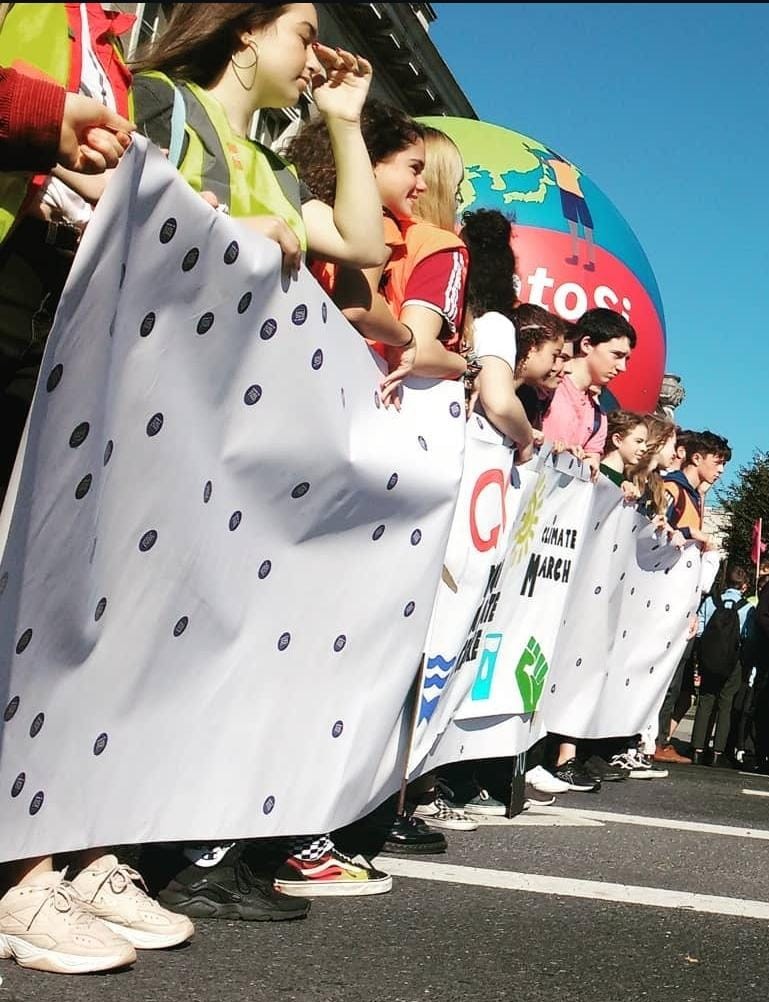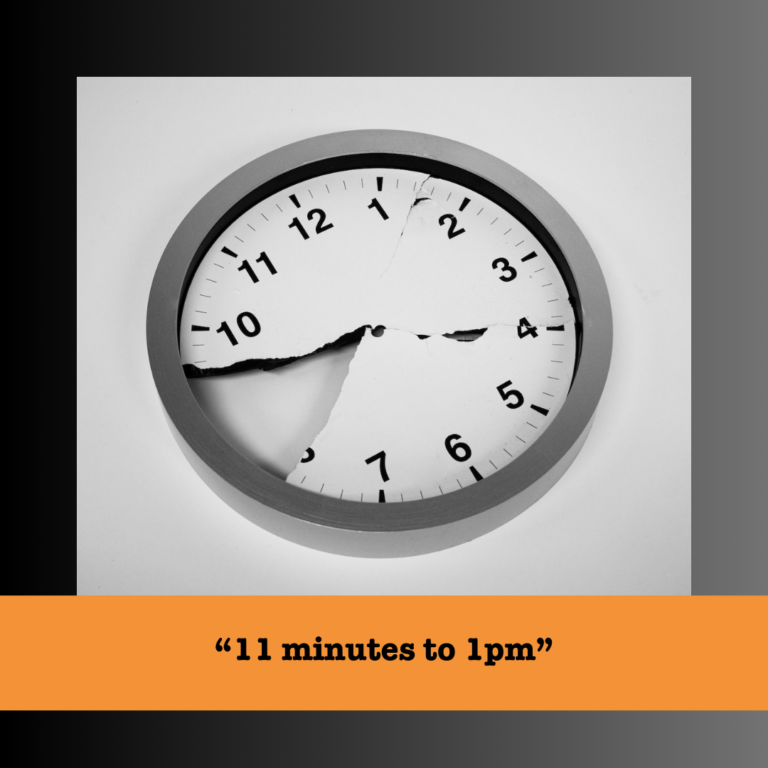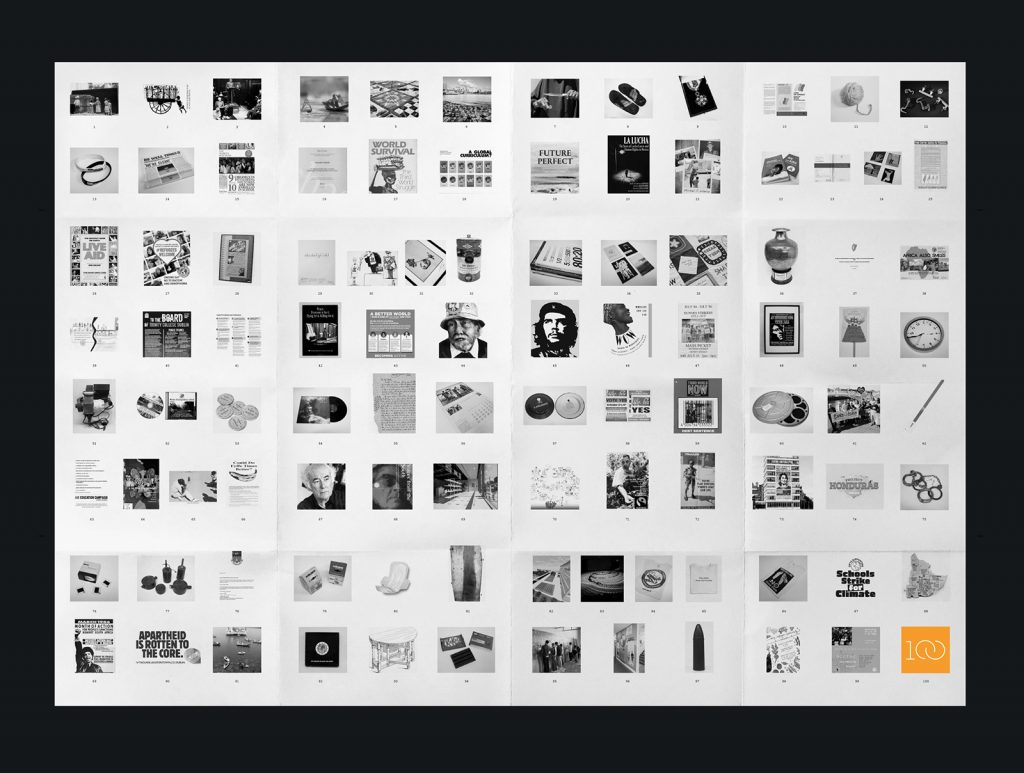From School Strikes to Global Climate Talks
The latest episode of the Irish Global Solidarity in 100 Objects podcast features Beth Doherty, climate activist and Ireland’s Youth Delegate to the UN Climate Conference (COP). A leading figure in youth climate activism, she helped organise the first major global school strike in Dublin on March 15, 2019, as part of the Fridays for Future movement. Over the past six years, Beth Doherty’s climate activism has taken her from the streets of Dublin to international negotiations at COP29.
How Beth Doherty’s Climate Activism Began
Beth’s journey began at 15, after reading about the 2019 Intergovernmental Panel on Climate Change (IPCC) report. It had a personal effect on her and made the climate crisis seem immediate.
“I saw the report and I got quite upset… it really woke me up to the reality of what was happening and how urgent it was.”
That sense of urgency quickly turned into action. In 2019, she and a group of friends organised Dublin’s first climate strike, drawing 10,000 people to the streets. This event marked the beginning of Fridays for Future Ireland and sparked a wave of youth-led activism demanding structural change.


The Power of Collective Action
From the outset, Beth explains, organising was a collective effort. Young people across Ireland connected through schools, counties, and communities. Civil society organisations and trade unions supported them, bringing decades of experience to the movement.
She reflects on what made those early protests so powerful:
“Ultimately, this is such a structural crisis — we need collectivist change. That’s what really appealed to me about mass movement and protest, particularly with Fridays for Future. It was people coming together as a collective to demand change from those in power, and to challenge the structures causing this crisis.”
That spirit of solidarity, she adds, has kept the movement alive, even as the climate crisis continues to grow.

A Clock and a Countdown
A symbolic moment from the school climate strikes took place during the Youth Strike for Climate on Friday, 20 September 2019. At eleven minutes to one, alarms rang out across the protest. On the main stage, a clock was smashed to represent the eleven years scientists had warned remained to prevent the worst effects of climate breakdown.
The same clock later appeared in the Irish Global Solidarity in 100 Objects exhibition. It serves as a reminder of how youth climate activism has become a defining part of Ireland’s global justice story. It remains a visual symbol of urgency and of what is at stake.
Beth recalls that the action was designed to highlight how little time there was to act. Now, with just five years remaining, she says it is clear that current efforts are falling far short of what is needed.
Bringing Youth Voices to COP29
In 2024, Beth became Ireland’s Climate Youth Delegate. As part of her role, she consulted with more than 25 youth organisations across the country to shape a national youth agenda for COP29, the UN climate summit.
“We are bringing the youth voice to COP, and trying to create spaces for young people to meet directly with decision makers.”
She explains that a key goal was to bring youth perspectives into real decision-making processes. However, despite strong advocacy, the outcomes were disappointing. The gap between promises and action, especially on climate finance, stood out. While some estimates suggest trillions are needed, negotiators only agreed to 300 billion per year.
Climate and Human Rights: From the Arctic to Ireland
Alongside her delegate work, Beth is involved with Global Choices’ Arctic Angels, a global network of young women campaigning to protect the Arctic. The group is calling for a ten-year moratorium on industrial activity in the region.
Describing the Arctic as the air-conditioning of the Earth, she stresses:
“You can’t plant ice. Once it’s gone, it’s absolutely gone and you can’t get it back. You lose that crucial air-conditioning effect – essentially if we lose the ice, we are in a very bad situation globally”
Beth also co-authored a report for UNICEF Ireland exploring how the climate crisis impacts children’s rights. It highlights issues like unequal access to support in rural areas and the challenges faced by children in direct provision. The report was later presented presented to the UN Committee on the Rights of the Child in Geneva.
Advice for Young Climate Activists
When asked what advice she would give to young people wanting to get involved in climate justice movements, Beth highlights the importance of starting locally.
She believes people understand the needs of their own communities best, and that organising together is more effective than acting alone. Even though the scale of the crisis can feel overwhelming, she encourages others to take part and build collective action from the ground up:
“I believe organising within communities is what truly matters. It’s what draws connections between people, and between the different issues that different groups are facing. I think it also allows us to build a really strong coalition across society.”
Listen to the Episode
Discover Beth Doherty’s journey from student strikes to UN negotiations in the latest episode of the Irish Global Solidarity in 100 Objects podcast, and hear how she continues to advocate for urgent climate action.
Credits
The Irish Global Solidarity in 100 Objects podcast is hosted by Ciara Regan.
This episode was produced by Tony Daly and Catherine Howley. Music by Jump Lead.
Brought to you by developmenteducation.ie and supported by Irish Aid.
Show notes:
- Learn more about the youth-led Fridays For Future movement
- Watch Growing Up at the End of the World, an RTÉ documentary featuring Beth Doherty and other young Irish climate activists
- Read the UNICEF report co-authored by Beth: Children’s Rights and the Climate Crisis in Ireland
- Explore the Arctic Angels campaign in Don’t Look North: Tackling the Ice Crisis with the Arctic Angels
- Read Beth’s profile in Irish Women in Activism and Advocacy
Teaching Resources on Climate Change and Climate Justice:
- Post Primary: Teacher Toolkit: Climate Change and Climate Justice
- Primary: The Primary Climate Justice Tree
- Youth Groups, Adult & Community Settings: 10 Myths About Climate Change
- Post-Primary Teaching Unit: Slow to Change, Quick to Greenwashing – case studies on fast fashion and fossil fuel adverts

Explore the posters, games, badges, books and more from the Irish Global Solidarity in 100 Objects exhibition online.




